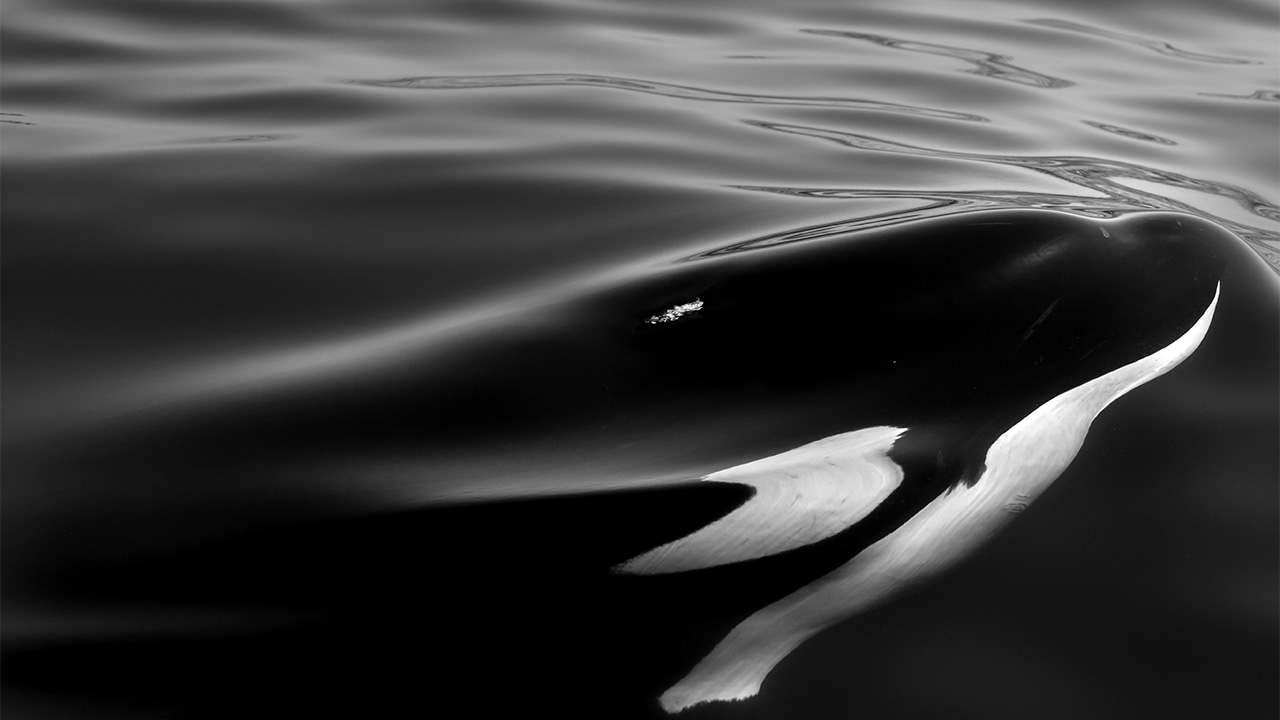On the coast of Vancouver Island, in the far west of Canada, a picturesque lagoon, is typically quiet, with an occasional sound of animals or a distant vehicle. However, since a lone2-year-oldorca calf was isolated two weeks ago in the lagoon, the area has been busy with commotion as arrangements were ongoing to save her.
The rescuers — an assorted crew of aquatic mammal experts, drone specialists, veterinarians, ecological advisors, and First Nations people — are trying desperately to unite the young killer whale with her large family, which comprises an aunt and a grandmother and is alleged to be in the northeastern Pacific Ocean. As food for the orca diminishes in the lagoon, rescuers know they must intensify their efforts.
The orca calf, nicknamed “Brave Little Hunter” by the resident First Nations people, arrived at the lagoon a month ago accompanied by her pregnant mother, perhaps to hunt seals that had escaped to the remote body of water close to the tiny village of Zeballos, British Columbia. Unfortunately, her mother got beached on a gravel bed, where she was found, helpless, by a passing road maintenance troop. The mother orca and the calf she was carrying, despite efforts to save her, died soon after discovery.
Since then, Cottrell and Ehattesaht First Nation Chief Simon John have been encouraging efforts to keep the orphaned calf live and healthy — and to entice her back to the Pacific, which is linked to the lagoon through a narrow entering. Rescuers have used acoustics that sound out dialogues of passing killer whales. They have also tried encouraging her to trail a group of canoes as people beat Native drums — a technique John says has succeeded in the past.
The calf, however, seems unable to locate an escape route, because of decreasing tides that narrow the water level at the lagoon’s entrance too shallow. She also seems to be unwilling to swim over a sandbank at the lagoon’s entrance, rescuers informed. There are only 15 to 20 minutes each day when the flow is deep enough to permit her to swim over it, according to Cottrell.
The Brave Little Hunter has been actively vocalizing, trying to communicate with her extended family — unfortunately can’t hear her due to the lagoon’s remote location. As recurrent efforts to push her back to the ocean have been unsuccessful, rescuers have sensed “pretty let down,” John said in a report. “She does not understand that we are trying to help,” he said.
Rescuers are exploring moving the calf onto a sling that will hold her as she is transported to the coast by vehicle before she is put into a pen in coastal waters. The calf can then be freed into the ocean after her pod travels nearby, John said at the news conference. Airlifting the calf has not been ruled out, although that strategy is no longer the primary choice, Cottrell said. Mobilizing a plan of this scale is “a lot of work,” Cottrell informed. Rescuers are hopeful to implement the plan within the next week, he added.
However, there is some good news as Brave Little Hunter seems to be hunting birds, indicating she has been nourishing herself. She also seems strong, according to data from drones monitoring the calf’s well-being. Rescuers have also said that a cluster of killer whales that could comprise her relatives has been swimming close to Vancouver Island. Brave Little Hunter “is still very young and would not endure without sustenance from relatives,” Volker Deecke, a professor of wildlife protection at the University of Cumbria in England, who knows some of the individuals involved in the rescue, said in a statement.








